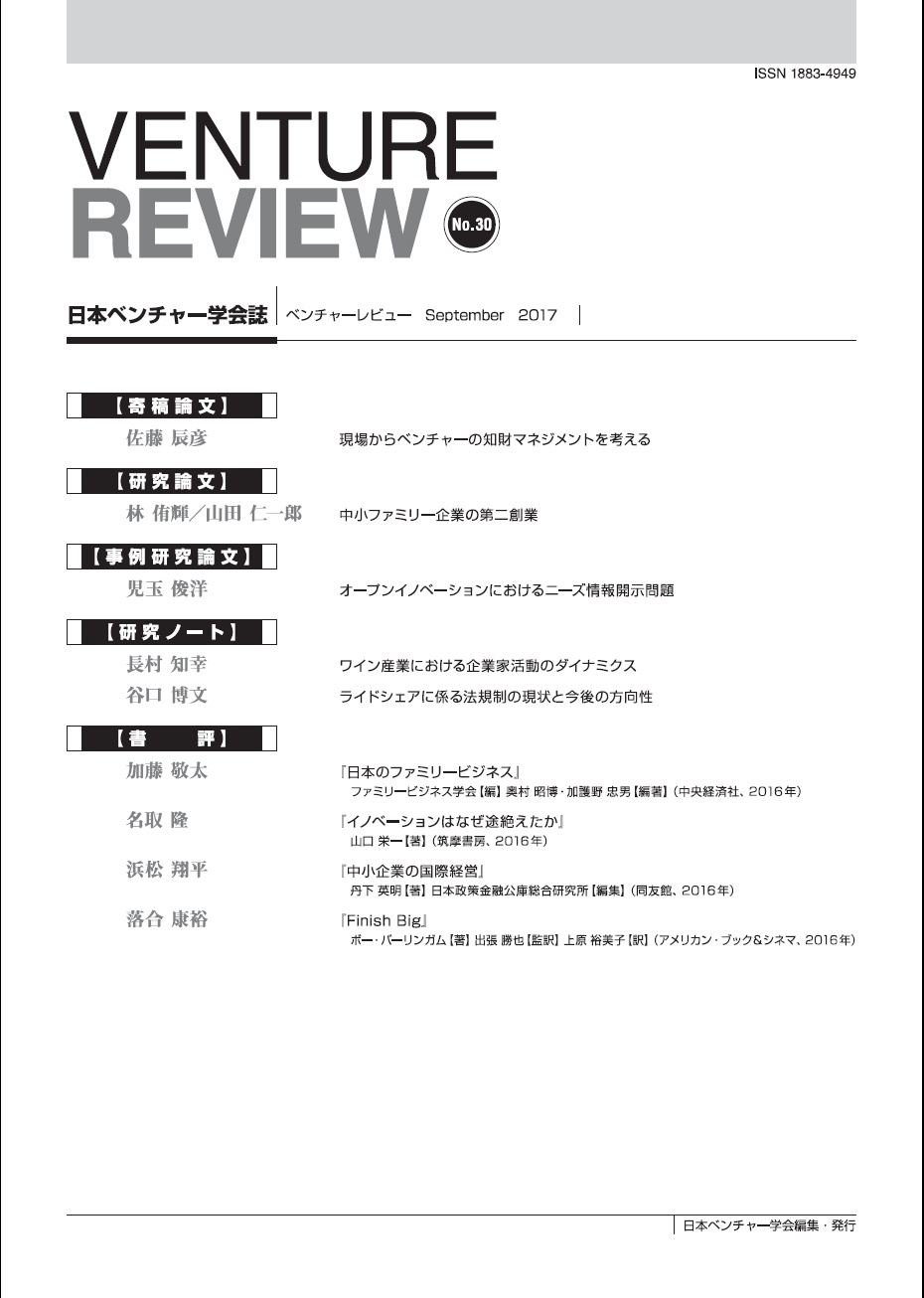Volume 36
Displaying 1-10 of 10 articles from this issue
- |<
- <
- 1
- >
- >|
Contribution Article
-
Article type: Contribution Article
Subject area: Economics, Business & Management
2020 Volume 36 Pages 3-12
Published: September 15, 2020
Released on J-STAGE: January 12, 2022
Download PDF (431K)
Article
-
Article type: Article
Subject area: Economics, Business & Management
2020 Volume 36 Pages 13-27
Published: September 15, 2020
Released on J-STAGE: January 12, 2022
Download PDF (610K) -
Article type: Article
Subject area: Economics, Business & Management
2020 Volume 36 Pages 29-43
Published: September 15, 2020
Released on J-STAGE: January 12, 2022
Download PDF (633K) -
Article type: Article
Subject area: Economics, Business & Management
2020 Volume 36 Pages 45-58
Published: September 15, 2020
Released on J-STAGE: January 12, 2022
Download PDF (555K)
Case Study
-
Article type: Case Study
Subject area: Economics, Business & Management
2020 Volume 36 Pages 59-73
Published: September 15, 2020
Released on J-STAGE: January 12, 2022
Download PDF (681K) -
Article type: Case Study
Subject area: Economics, Business & Management
2020 Volume 36 Pages 75-89
Published: September 15, 2020
Released on J-STAGE: January 12, 2022
Download PDF (596K) -
Article type: Case Study
Subject area: Economics, Business & Management
2020 Volume 36 Pages 91-105
Published: September 15, 2020
Released on J-STAGE: January 12, 2022
Download PDF (724K)
Research Data
-
Article type: Research Date
Subject area: Economics, Business & Management
2020 Volume 36 Pages 107-111
Published: September 15, 2020
Released on J-STAGE: January 12, 2022
Download PDF (295K)
Book Review
-
Article type: Book Review
Subject area: Economics, Business & Management
2020 Volume 36 Pages 113-114
Published: September 15, 2020
Released on J-STAGE: January 12, 2022
Download PDF (215K) -
Article type: Book Review
Subject area: Economics, Business & Management
2020 Volume 36 Pages 115-116
Published: September 15, 2020
Released on J-STAGE: January 12, 2022
Download PDF (198K)
- |<
- <
- 1
- >
- >|
